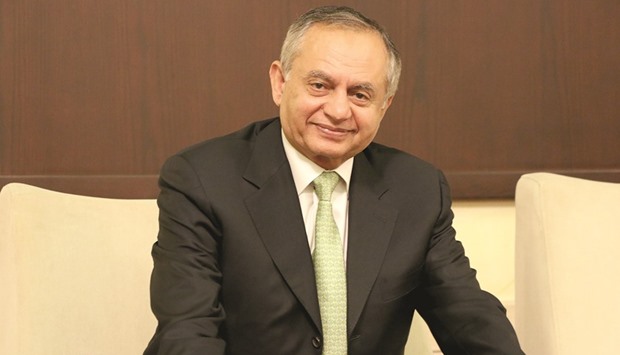ISLAMABAD: Unlike the previous ministers of commerce and industry, Prime Minister’s Adviser on Commerce Abdul Razak Dawood has proved to be highly influential in the federal cabinet of this government to make the supplementary budget more business/trade friendly.
The proposals made in the mini-budget show that most of the recommendations forwarded by commerce division and the ministry of industries have been accommodated. “Previously the proposals of the Federal Board of Revenue (FBR) have been given more importance by the finance ministry while making budgets. This time, it seems, the commerce and industries divisions have more influence in policy making,” said an official at the finance ministry.
According to him, FBR officials have always been trying to convince the finance ministers that any proposal conflicting with the recommendations of the board will ultimately undermine the revenue targets forcing the finance division to avoid taking any decisions against revenue side. “The introduction of the mini-budget, which has a negative revenue impact of Rs8.6 billion during the next six months of this financial year, is evident that Abdul Razak Dawood has convinced the finance minister and cabinet to get extraordinary facilities to commerce, industry and investors in the budget,” said sources.
Earlier, the introduction of National Tariff Policy, despite opposition from FBR, also indicates that the commerce ministry, for the first time in the history, is going to play its due role so that the tariff structure reflects trade policy priorities, improve competitiveness through duty-free access to import raw materials and encourage value addition through the principle of cascading the tariffs and removing anomalies in the tariff structure. The Ministry of Commerce is also working on a new Strategic Trade Policy Framework (STPF) to reduce the cost of production and encourage investment in export-oriented sectors.
According to an official at the commerce ministry, the proposals of restricting imports of used cars under baggage system, which has received the approval from the Economic Coordination Committee (ECC) also shows that the commerce division has better presented its case at the highest forum despite opposition by the FBR. FBR which is already facing over Rs160 billion shortfall in revenue had feared that it would lose another Rs70 billion in terms of duties in case the import of used cars is restricted through the imposition of new conditions.
Another major decision in the supplementary budget was to abolish the condition of filers for the purchase of cars. On the recommendation of the ministry of industries, the condition was relaxed as the same had badly affected the sale of cars. As per the mini-budget, ban on the purchase of vehicles for non-filers lifted for new locally manufactured cars up to a capacity of 1300CC, but higher taxes will apply. The proposal was also forwarded by the ministry of industries following a request on the part of the auto sectors. The Government has reduced and abolished (in some cases) duties on raw material to support export industries, which will also be helpful for the vendors of the local auto industry.
Razak Dawood, during a recent event, said his government has taken effective steps to facilitate businesses in the mini-budget while paying special attention to 10 to 15 sectors of the economy. He claimed this year, the country will achieve the target of highest and historic exports.
The major initiatives in the mini-budget including a reduction of tax on income generated from loans to small businesses, agriculture sector and low-income housing, waiving of withholding tax on banking transactions, exemption of submitting withholding tax on returns, reduction and abolishment (in some cases) of duties on raw materials, abolishing 0.02 per cent withholding tax on trading, exemption of taxes on machinery for greenfield projects (including renewables) for five years, reduction of duty on diesel engines for agricultural applications, and others measures in the budget were aimed at supporting exports, business and investments in the country.




